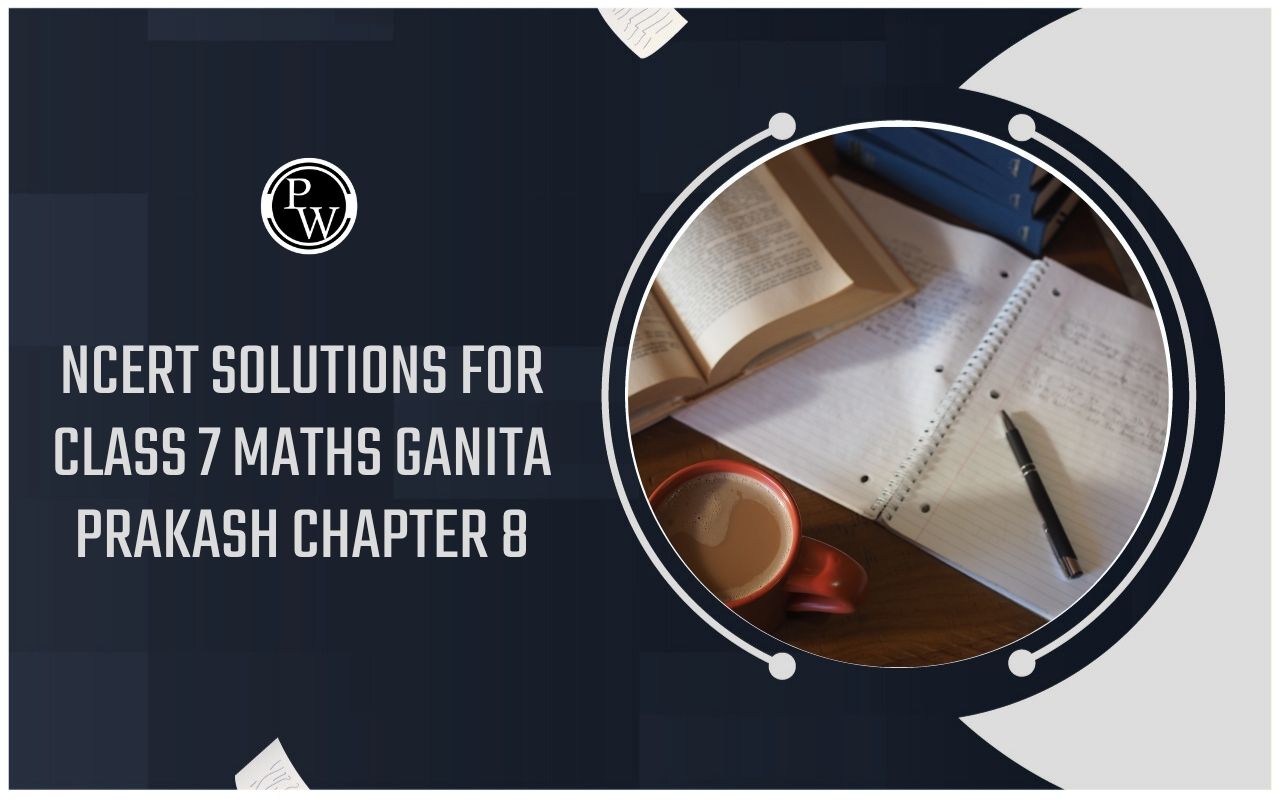
NCERT Solutions for Class 7 Social Science History Chapter 3
NCERT Solutions For Class 7 History Chapter 3: NCERT Solutions For Class 7 History Chapter 3 Delhi Sultans are made by experts at Physics Wallah. These solutions have answers to various questions and offer valuable insights into exam doubts. Chapter 3 of Class 7 History focuses on the Delhi sultans, who governed the region for a very long time. This chapter discussed the establishment of Delhi sultans, their historical background, and the diverse circumstances they encountered during their rule.NCERT Solutions for Class 7 Social Science History Chapter 3 PDF Download
NCERT Solutions for Class 7 Social Science History Chapter 3 Overview
The NCERT Solutions for Class 7 History Chapter 3 provide a comprehensive overview of the topic "Delhi Sultans." Developed by experts at Physics Wallah, these solutions serve as a valuable resource for students preparing for their examinations. This chapter delves into the formation of Delhi sultans, tracing their historical origins and examining the varied challenges they faced while in power. The provided solutions not only assist in exam readiness but also play a pivotal role in resolving doubts, fostering a more profound understanding of the subject matter. The inclusion of real-life examples and demonstrations in the chapter enhances the learning experience, making it both engaging and easily understandable. Presented in an easy format, the NCERT Solutions are easily accessible with convenient download options. Serving as a potent tool, they contribute to the enhancement of students' skills and knowledge, encompassing crucial study topics and aiding overall academic success in Class 7 HistoryNCERT Solutions for Class 7 Social Science History Chapter 3 Delhi Sultans
NCERT Solutions for Class 7 History Chapter 3 Delhi Sultans are provided here with simple step-by-step explanations. 1. Which ruler first established his or her capital in Delhi? Ananga Pala (Tomaras) of the Rajput Dynasty first established his capital in Delhi. 2. What was the language of administration under the Delhi Sultans? The language of administration under the Delhi Sultans was Persian. 3. In whose reign did the Sultanate reach its farthest extent? During the reign of Muhammad Tughluq, the Sultanate reached its farthest extent and marched across a large part of the Indian subcontinent. They defeated the rival armies and seized several cities. The Sultanate also collected taxes from the peasantry and dispensed justice in its realm. 4. From which country did Ibn Battuta travel to India? Ibn Battuta was a fourteenth-century traveller who came to India from Morocco, Africa. 6. According to the “circle of justice”, why was it important for military commanders to keep the interests of the peasantry in mind? According to the “circle of justice”, it was important for military commanders to keep the interests of the peasantry in mind because the salaries of the military commanders came from the revenue collected from peasants. However, the peasants were able to pay their revenue only when they were prosperous and happy. Thus, the military commanders promoted justice and honest governance. 7. What is meant by the “internal” and “external” frontiers of the Sultanate? The “internal” frontiers of the Sultanate means the consolidation of the hinterlands of the garrison towns. During these campaigns, forests were cleared in the Ganga-Yamuna doab, and hunter-gatherers and pastoralists were expelled from their habitat; these lands were handed over to the peasants. They also promoted regional trade through the establishment of New fortresses and garrison towns. The “external” frontiers of the Sultanate meant the military expeditions into southern parts of India, which started during the reign of Alauddin Khalji and ended with the reign of Muhammad Tughluq8. What were the steps taken to ensure that muqtis performed their duties? Why do you think they may have wanted to defy the orders of the Sultans? The muqtis or iqtadar was a military commander appointed by the Khilji and Tughlaqs monarchs as governors of territories of varying sizes. These lands were called ‘Iqta’. The duties of the muqtis were as follows:
- To lead military campaigns and maintain law and order in their iqtas.
- The muqtis had to collect the revenues of their assignments as salary in exchange for their military services and had to pay their soldiers from these revenues.
- Control over muqtis was most effective if their office was not inheritable and if they were assigned iqtas for a short period of time before being shifted.
- Accountants were appointed by the state to check the amount of revenue collected by the muqtis. Care was taken that the muqti collected only the taxes prescribed by the state and that they kept the required number of soldiers.
- Large standing armies against the Mongols were raised by Alauddin Khalji and Muhammad Tughlaq
- A new garrison town was constructed by Alauddin.
- Huge taxes were imposed on the farmers.
- The authors of tawarikh used to live in cities (mainly Delhi) and not in villages
- Often they wrote histories for Sultans in the hope of getting rich rewards.
- They also advised rulers regarding their birthrights and gender distinctions.
| CBSE Syllabus Class 7 | |
| CBSE Class 7 English Syllabus | CBSE Class 7 Math Syllabus |
| CBSE Class 7 Social Science Syllabus | CBSE Class 7 Science Syllabus |
NCERT Solutions for Class 7 Social Science History Chapter 3 Delhi Sultans Topic-Wise Discussion
Introduction: History is a vital subject in our education system. You get to know about human civilization, acculturation and the past of the world. From Class 7, History tells you the past of your own country. The past of governance, constitution, rulers and others are included in Class 7 History. One of the most important chapters of Class 7 History is Ch 3, which is about the Delhi Sultans. The rulers of Delhi, History of Delhi sultans, administration and consolidation under Khaljis and Tughlaqs, Delhi sultans in the fifteenth and sixteenth century and other histories of Delhi sultanas are mentioned in this chapter. You must read the Class 7th History Chapter 3 thoroughly to have an excellent knowledge of the topic which will help you in your exam. Also, it will be beneficial for your upcoming academic career. The History of Delhi Sultanate: Delhi sultanate was founded in 1206 and was running up to 1526. It was an Islamic empire based government which ruled the large part of the Indian subcontinent for 320 years. The sultanate was ruled by the Slave dynasty (1206-1290), Khilji dynasty (1290-1320), Tughlaq dynasty (1320-1414), Sayyid dynasty (1414-1451) and Lodi dynasty (1451-1526). The capitals of Delhi Sultanate were Lahore, Badaun, Delhi, Daulatabad and Agra at different times. The first sultan of Delhi sultanate was Qutb al-Din Aikbak, and the last sultan was Ibrahim Lodi. The most popular female sultan was Razia Sultana. Delhi Sultanate’s Contribution to The Country: Delhi sultanate’s best offering to the country was fine art, architecture, paintings, monuments, etc. The artists combine the Indian and Islamic style in their architecture and sculpture. The tallest monument of India, Qutb Minar, was founded at the time of Delhi sultanate by Qutb al-Din Aibak. One of the main gateways on the southern side of India, the Alai Darwaza, was founded in the time of Delhi Sultanate. Also, the paintings created at the time of Delhi Sultanate are famous throughout the worldBenefits of NCERT Solutions for Class 7 Social Science History Chapter 3
NCERT Solutions for Class 7 Social Science History Chapter 3 offer several benefits to students, enhancing their understanding and performance in the subject. Here's a detailed exploration of these advantages: 1. Concept Clarity: NCERT Solutions provide clear explanations and solutions to the exercises in Chapter 3. This aids in the comprehension of historical concepts related to the Delhi sultans, ensuring students have a solid foundation of the subject matter. 2. Exam Preparation: The solutions are specifically designed to assist students in preparing for their exams. By following the provided answers and explanations, students can familiarise themselves with the types of questions likely to appear in the exams, enabling them to approach their exams with confidence. 3. Doubt Resolution: NCERT Solutions act as a valuable resource for resolving doubts. The detailed solutions help students understand complex topics, and any lingering doubts can be clarified by referring to the provided answers. 4. Enhanced Learning Experience: Real-life examples and demonstrations featured in the solutions contribute to a more engaging learning experience. This approach makes historical concepts more relatable and accessible, fostering a deeper understanding of the subject. 5. Skill Development: The solutions aid in the development of essential skills such as critical thinking and analytical reasoning. By working through the exercises and understanding the solutions, students hone their ability to analyse historical events and draw logical conclusions. 6. Accessibility: NCERT Solutions are available in a simple and accessible format, making them easy for students to use. The solutions can be easily accessed and downloaded, providing a convenient study resource. 7. Guided Study: The solutions are designed by expert tutors, ensuring a guided and structured approach to studying Chapter 3. This helps students stay focused and organised in their study sessions. 8. Overall Academic Success: By utilising NCERT Solutions, students can reinforce their understanding of key historical topics. This, in turn, contributes to their overall academic success in Social Science History Class 7, as they are better equipped to tackle exams and assignments.How to Prepare With NCERT Solutions for Class 7 Social Science History Chapter 3
Preparing with NCERT Solutions for Class 7 Social Science History Chapter 3 involves a strategic and systematic approach to ensure effective learning and understanding. Here's a detailed guide on how to prepare using these solutions:- Read the Chapter Thoroughly: Begin by reading Chapter 3 of Class 7 Social Science History carefully. Understand the historical events, concepts, and the context of the Delhi sultans.
- Note Important Points: While reading, make note of important dates, events, and key concepts. This will help in quick revision and reinforcement of crucial information.
- Attempt Exercises Independently: Try to solve the exercises at the end of the chapter independently before referring to the NCERT Solutions. This will help you assess your initial understanding and identify areas that require more attention.
- Refer to NCERT Solutions: After attempting the exercises, refer to the NCERT Solutions provided for Chapter 3. Analyse the solutions carefully to understand the correct approach to solving problems and the reasoning behind each answer.
- Understand Concepts in Depth: Pay attention to the explanations provided in the solutions. Understand the historical context, causes, and consequences of events. This depth of understanding will be beneficial not only for exams but also for a more comprehensive grasp of the subject.
- Clarify Doubts: If you come across any doubts or difficulties, use the NCERT Solutions to clarify them. The solutions act as a guide to resolving uncertainties and ensuring a clear understanding of historical concepts related to the Delhi sultans.
- Review Regularly: Schedule regular reviews of the chapter and the solutions. This helps in reinforcing the learned material and maintaining a steady progression in your understanding.
- Practice with Real-Life Examples: The inclusion of real-life examples and demonstrations in the solutions can be used for practical application. Relate historical events to real-world scenarios, enhancing your ability to connect theory with practical knowledge.
- Engage in Group Discussions: Discussing the chapter with classmates or participating in group study sessions can provide diverse perspectives and insights. It also helps reinforce your own understanding by explaining concepts to others.
- Utilise Additional Resources: While NCERT Solutions are comprehensive, it's beneficial to supplement your study with other resources like reference books, documentaries, or online materials. This can provide a broader perspective on historical events.
- Stay Organized: Maintain a well-organised study schedule. Allocate specific time slots for studying Chapter 3 and reviewing the solutions. This ensures consistent progress and prevents last-minute cramming.
- Seek Guidance if Needed: If you encounter persistent challenges, seek guidance from your teacher or classmates. Don't hesitate to ask questions and clarify doubts for a thorough understanding of the subject.
NCERT Solutions for Class 7 Social Science History Chapter 3 FAQs
Who were the authors of tawarikh? Write in brief about them.
The authors of tawarikh were learned men. They were secretaries, administrators, poets and courtiers who recounted events as well as advised rulers on governance, emphasising the importance of just rule. The authors of tawarikh lived in cities mainly in Delhi and therefore they were cut off from the village.
Who was Raziyya? Why was she not accepted as a Sultan in spite of being talented?
Raziyya was Sultan Iltutmish’s daughter. She became Sultan in 1236. She was very talented. According to the chronicler of the age, Minhaj-i-Siraj, she was more able and qualified than all her brothers. But she was not accepted when she became a ruler.
Why did Alauddin control the prices of goods in Delhi? What did he do for this?
Alauddin gave great importance to his soldiers because it was they who could defend the Sultanate from outsiders. He decided to pay their salaries in cash rather than iqtas. The soldiers would buy their supplies from merchants in Delhi and it was thus feared that merchants would raise their prices.
Who was Sher Shah Sur? What do we know about his administration?
Sher Shah Sur (1540—1545) established a powerful state. He started his career as the manager of a small territory for his uncle in Bihar and eventually challenged and defeated the Mughal Emperor Humayun. Sher Shah captured Delhi and established his own dynasty known as the Suri dynasty.
Why were Muhammad Tughluq’s administrative measures a failure?
Muhammad Tughluq’s administrative measures were a failure because he campaigned in Kashmir which was finally a disaster, he gave up his plans to invade Transoxiana and disbanded his large army, and because of his administrative measures.
🔥 Trending Blogs
Talk to a counsellorHave doubts? Our support team will be happy to assist you!

Check out these Related Articles
Free Learning Resources
PW Books
Notes (Class 10-12)
PW Study Materials
Notes (Class 6-9)
Ncert Solutions
Govt Exams
Class 6th to 12th Online Courses
Govt Job Exams Courses
UPSC Coaching
Defence Exam Coaching
Gate Exam Coaching
Other Exams
Know about Physics Wallah
Physics Wallah is an Indian edtech platform that provides accessible & comprehensive learning experiences to students from Class 6th to postgraduate level. We also provide extensive NCERT solutions, sample paper, NEET, JEE Mains, BITSAT previous year papers & more such resources to students. Physics Wallah also caters to over 3.5 million registered students and over 78 lakh+ Youtube subscribers with 4.8 rating on its app.
We Stand Out because
We provide students with intensive courses with India’s qualified & experienced faculties & mentors. PW strives to make the learning experience comprehensive and accessible for students of all sections of society. We believe in empowering every single student who couldn't dream of a good career in engineering and medical field earlier.
Our Key Focus Areas
Physics Wallah's main focus is to make the learning experience as economical as possible for all students. With our affordable courses like Lakshya, Udaan and Arjuna and many others, we have been able to provide a platform for lakhs of aspirants. From providing Chemistry, Maths, Physics formula to giving e-books of eminent authors like RD Sharma, RS Aggarwal and Lakhmir Singh, PW focuses on every single student's need for preparation.
What Makes Us Different
Physics Wallah strives to develop a comprehensive pedagogical structure for students, where they get a state-of-the-art learning experience with study material and resources. Apart from catering students preparing for JEE Mains and NEET, PW also provides study material for each state board like Uttar Pradesh, Bihar, and others
Copyright © 2026 Physicswallah Limited All rights reserved.







